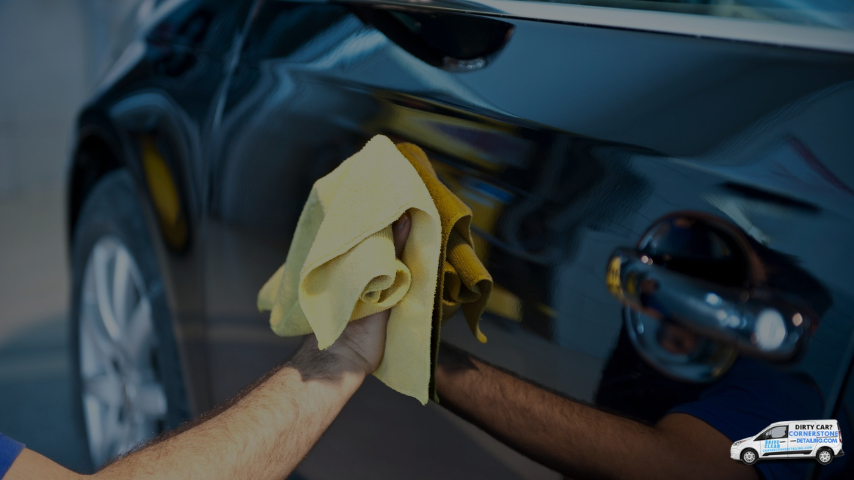When you hear “ISO 17025,” you might think, “Oh, that’s just another certification, right?” But here’s the thing: ISO 17025 isn’t just a stamp of approval—it’s a powerful tool for manufacturers with in-house laboratories. It’s about elevating your operations, streamlining processes, ensuring accuracy, and ultimately boosting your credibility in a competitive market.
In-house labs are increasingly the backbone of manufacturing operations, helping businesses speed up product development, ensure quality control, and meet customer specifications. But let’s face it—without the right framework, even the most skilled team can struggle to maintain consistent results. That’s where ISO 17025 comes in.
But what exactly is ISO 17025? And why should manufacturers consider certification? If you’ve got an in-house lab, this guide is going to walk you through all the essential details.
What is ISO 17025?
Simply put, ISO 17025 is the international standard that defines the requirements for the competence of testing and calibration laboratories. It applies to any organization that performs testing or calibration and helps ensure that their operations are consistent, accurate, and reliable.
Why does this matter for manufacturers? Well, your lab is responsible for verifying the quality of raw materials, ensuring the integrity of your final products, and testing the precision of your manufacturing processes. Without a clear and reliable system in place, those tests might be inconsistent, unreliable, or worse—wrong. ISO 17025 provides that structure.
It’s also a critical credential for companies aiming to expand their reach in international markets. Many customers and regulatory bodies require proof that your testing and calibration processes meet the highest international standards.
What Does ISO 17025 Certification Involve for Manufacturers?
Let’s take a quick look at what goes into the certification process. While it sounds complicated, it’s really just about meeting a set of clear standards that boost your credibility and reliability.
Competence in Testing and Calibration
Your lab’s ability to produce accurate results is fundamental to ISO 17025. The standard ensures that your staff has the necessary skills, equipment, and procedures to produce reliable data consistently. It’s not just about getting the results—it’s about getting them right, every time.
Quality Management Systems
ISO 17025 requires labs to implement a quality management system (QMS). This helps you track everything from how tests are done to how results are recorded and reported. If you’re already familiar with ISO 9001 (a standard for quality management), you’ll notice a similar approach. But the key difference? ISO 17025 focuses specifically on laboratory operations.
Calibration and Validation
Calibration is a critical part of manufacturing. Tools, instruments, and equipment must be calibrated regularly to ensure measurements remain accurate. ISO 17025 ensures that your lab follows recognized procedures to keep all instruments calibrated and maintained correctly.
Documented Procedures and Traceability
Clear documentation is one of the cornerstones of the standard. ISO 17025 requires that all laboratory processes, testing methods, and results are well documented, and that all equipment and instruments used in testing have traceability to national or international standards.
The Benefits of ISO 17025 Certification for Manufacturers
The benefits of getting ISO 17025 certification extend far beyond a shiny new certificate for your wall. Here’s why it’s a game-changer for manufacturers with in-house labs:
1. Enhanced Credibility and Reputation
With ISO 17025, your lab earns a stamp of approval from an internationally recognized authority. Whether you’re testing raw materials, intermediate products, or final goods, ISO 17025 certification assures your customers and partners that your testing procedures are precise and trustworthy. This can lead to stronger relationships, more clients, and even new business opportunities.
2. Improved Accuracy and Consistency
The standard provides a framework that drives consistency in your testing and calibration processes. It reduces errors, improves the quality of your results, and enhances the efficiency of your operations. That means fewer rejections, reduced costs, and faster turnaround times—all of which contribute to higher customer satisfaction.
3. Faster Market Entry
By having ISO 17025 certification, you’re not just meeting regulatory requirements—you’re exceeding them. This can speed up your product approvals, ensuring quicker access to new markets and enabling you to compete on a global scale.
4. Better Resource Management
ISO 17025 helps ensure that your lab operates at maximum efficiency. You’ll have well-documented processes, better-trained staff, and optimized use of equipment. This leads to lower operational costs and better resource allocation across your organization.
5. Regulatory Compliance and Risk Reduction
Many industries—especially pharmaceuticals, automotive, and aerospace—have strict testing and calibration standards. ISO 17025 certification can help ensure that you comply with all applicable regulations, reducing the risk of costly fines or legal issues.
Key Requirements of ISO 17025 for Manufacturers with In-House Labs
Now that we’ve discussed the importance and benefits, let’s get into the nitty-gritty. Here’s a quick rundown of the key requirements:
1. Organizational Structure and Staffing
You need a clearly defined organizational structure in your lab, with roles and responsibilities documented for every member of the team. ISO 17025 also requires that your staff are adequately qualified and receive ongoing training.
2. Facilities and Equipment
Your lab facilities need to be maintained to a high standard, ensuring a safe working environment. Equipment must be calibrated regularly, and all maintenance activities need to be logged to ensure traceability.
3. Standard Operating Procedures (SOPs)
ISO 17025 demands that you have detailed standard operating procedures for all your testing and calibration activities. These procedures should cover everything from how to handle materials to how results are recorded and communicated.
4. Measurement Uncertainty
Manufacturers need to be able to demonstrate how precise their measurements are. ISO 17025 requires that you calculate and document the uncertainty in your measurements. This provides further evidence that your testing processes are accurate and reliable.
5. Internal Audits
Regular internal audits are essential for ensuring ongoing compliance. ISO 17025 requires that your lab conducts periodic self-assessments to verify that processes are being followed and identify any areas for improvement.
The Certification Process: Step-by-Step
Let’s take a moment to walk through the certification process, so you know exactly what to expect:
Step 1: Preparation
First, you’ll need to evaluate your current lab practices and assess whether they meet ISO 17025’s requirements. This is where a gap analysis comes in handy. If your lab already follows some standard procedures (like ISO 9001), you might already be partway there.
Step 2: Implementation
Once you know where the gaps are, you’ll need to implement the required processes. This may involve revamping your quality management system, updating documentation, or providing additional training to your staff.
Step 3: Initial Audit
This is the formal step where a third-party auditor comes in to assess your lab’s compliance with ISO 17025. They’ll review everything from your documentation to your equipment maintenance procedures. If everything checks out, you’ll receive your certification.
Step 4: Ongoing Maintenance
ISO 17025 isn’t a one-time deal. After certification, you’ll need to undergo periodic surveillance audits to maintain your certification. These audits help ensure that your lab continues to meet the high standards set by ISO.
Common Challenges and How to Overcome Them
While the benefits of ISO 17025 certification are clear, the road to certification isn’t always smooth. Here are a few common challenges manufacturers face and how to tackle them:
1. Inadequate Staff Training
Without proper training, your lab staff might struggle to meet ISO 17025 requirements. Invest in ongoing training and professional development to ensure your team is always up to date on the latest industry standards.
2. Resistance to Change
Implementing ISO 17025 can sometimes be met with resistance from staff who are used to working in a certain way. Engage your team early in the process, communicate the benefits, and encourage feedback. This will help build buy-in and make the transition smoother.
3. Resource Constraints
For smaller manufacturers, the time and resources required to implement ISO 17025 might seem daunting. Consider starting with a small-scale implementation and gradually expanding. You can also consult with ISO experts to streamline the process.
Conclusion: A Certification That’s Worth the Investment
ISO 17025 certification is more than just a “nice-to-have.” For manufacturers with in-house labs, it’s a critical asset that ensures quality, compliance, and continuous improvement. Whether you’re in automotive, pharmaceuticals, electronics, or any other manufacturing sector, achieving ISO 17025 certification will help you deliver more consistent, accurate, and reliable results.
At the end of the day, it’s about trust—trust with your customers, trust with regulators, and trust in your own internal processes. The investment in certification is an investment in your company’s future. So, if you haven’t already started the journey, now’s the time. It’s the key to unlocking your lab’s true potential.



